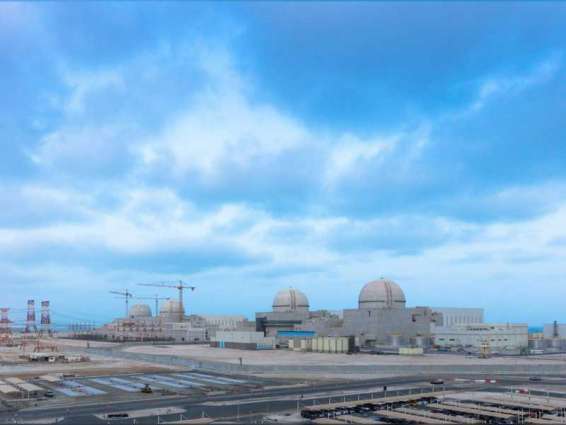ABU DHABI, (Pakistan Point News - 17th Feb, 2020) The progress of the UAE’s Peaceful Nuclear Energy Programme has been full of achievements, culminating in today’s announcement of the issuance of the operational licence for the first unit of the Barakah Nuclear Energy Plant.
In 2008, the country issued the 'Policy of the United Arab Emirates on the Evaluation and Potential Development of Peaceful Nuclear Energy' that emphasised six key pillars, including the country's commitment to complete operational transparency; the pursuit of the highest standards of non-proliferation and commitment towards the highest standards of safety and security.
Other pillars include the UAE working directly with the International Atomic Energy Agency, IAEA and conforming to its standards in evaluating and potentially establishing a peaceful nuclear energy programme; forming partnerships with governments and responsible bodies to develop any peaceful domestic nuclear power capabilities, and approaching such capabilities in a manner that ensures long-term sustainability.
In 2009, the Federal Authority for Nuclear Regulation, FANR, was established as the regulatory authority of the UAE’s nuclear energy sector, along with the Emirates Nuclear Energy Corporation, ENEC, to provide safe and efficient nuclear energy.
During this journey and until today’s announcement, seven licences were issued for the plant. In March 2010, a licence for selecting the plant site was issued, and in July 2010, a licence was issued for preparing the site. In July 2012, the licence for the construction of the first two units of the plant was issued, and in July 2014, the construction licence for its third and fourth units was issued.
In January 2017, a licence related to nuclear fuel handling and storage was issued, leading to today’s announcement of the issuance of the licence to operate the plant’s first unit for a period of up to 60 years. The Authority is scheduled to issue a licence in 2080 to shut down and dismantle the nuclear facility.
Prior to today’s announcement, FANR reviewed the operating licence, which includes the following components: the plant’s design diagram, location, geographical and demographic characteristics, reactor design, fuel and control and cooling systems, safety systems, radioactive waste management, physical protection, nuclear non-proliferation, emergency preparedness, response system, shutdown plan, dismantling plan and capacity building plan.
Hamad Ali Al Kaabi, UAE Permanent Representative to the IAEA and Deputy Chairman of the board of Directors of FANR, said that one of the articles of the UAE’s nuclear policy issued in 2008 emphasised the development of a sustainable programme to train UAE nationals to work in this sector.
He added that FANR has over 245 employees, with the percentage of Emirati employees totalling 67 percent while pointing out that the Authority conducts an annual training programme, in cooperation with partner universities.
Al Kaabi stressed that the Authority is proud of the Emirati citizens working in the country’s nuclear sector, noting that they are qualified and have the required skills.
During the previous decade, the UAE has welcomed 11 comprehensive assessment missions from the IAEA to review and assess its infrastructure and legal and organisational frameworks, as well as its nuclear safety and security standards, and its preparedness for emergency and non-proliferation situations.
The UAE has signed over 13 related international treaties, including the IAEA Comprehensive Safeguards Agreement, the Additional Protocol to the IAEA Comprehensive Safeguards Agreement, the Convention on Nuclear Safety, the Treaty on the Non-Proliferation of Nuclear Weapons, and the Comprehensive Nuclear-Test-Ban Treaty, as well as the US–UAE 123 Agreement for Peaceful Civilian Nuclear Energy Cooperation.
The Barakah plant will produce electricity that will cover 25 percent of the UAE's energy needs and prevent the emission of around 21 million tonnes of carbon annually.
The plant is based on the third generation APR1400 nuclear power reactor designed by the Korean Electric Power Corporation, KEPCO. The combined production capacity of its four units amounts to 5,600 megawatts, with each unit generating 1,400 megawatts of energy.




